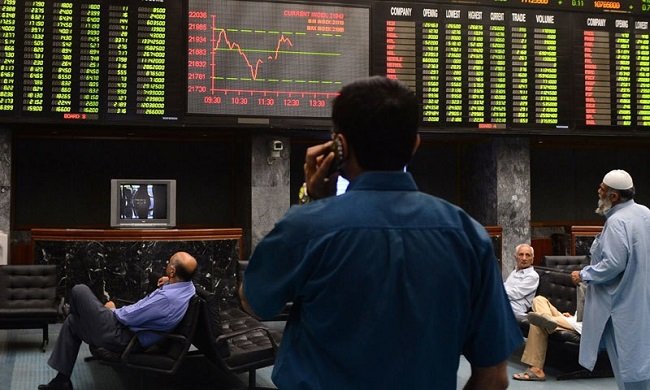The meeting of G-20 finance ministers has just been concluded in Germany but there is still a dark shadow of uncertainty hanging over global trade. To start with, the Communiqué released after the meeting provides reasons to be worried about global economic trends because of the things it didn’t say on trade.
For instance, the G-20 finance ministers practically refrained from making the usual commitment to foster cooperation on global trade. In fact, the G-20 finance ministers seemed hesitant to discuss or mention trade – “trade” was mentioned two times in this communiqué – ”trade” was mentioned 40 times in the communiqué from the last G-20 finance ministers meeting that held six months ago.

From the foregoing, one could make two submissions. The first submission is that the G-20 finance ministers are passing up the responsibility of sorting out the brewing issues in global trade to their political leaders. The second submission is that the G-20 finance ministers are probably clueless on how the geopolitical tensions could affect global trade. The fact that G-20 finance ministers don’t know where the global economy is headed suggests that traders and investors can expect increased volatility in the markets going forward.
Increased uncertainty brewing in the global equity markets
The lack of concrete information on global trade from the last G-20 meeting of finance ministers is sowing the seeds of concerns in the global economic landscape. The performance of equities in the global market suggests that traders and investors are worried that protectionism might become the order of the day at the expense of free trade.
The fears of increased geopolitical headwinds if trade wars begin is already triggering increased uncertainty and its attendant volatility in the global equities market. As at market open on Monday, March 20 (the first trading session after the G-20 meeting) global equities were mostly choppy. In Asia, Japan’s Nikkei 25 was down 0.35%, China’s Shanghai was up 0.41%, South Korea’s Kospi was down 0.5%, Hong Kong’s Hang Seng was up 0.6%, and Taiwan’s Taiex up 0.1%.
Here’s you could get trading direction in a directionless market
It could be very hard to make sense of where the markets are headed after G20 finance ministers failed to denounce protectionism in the global economic landscape. Nobody knows the extent to which increased protectionism will alter the balance of the markets but stakeholders agree that we will see increased market volatility as the world transitions from an era of free trade into an era of protectionism.
Institutional investors are in a better position to navigate the upcoming market uncertainties because they have better access to market data and they have strong cash positions to make volume trades and hedge such trades. However, individual retail traders are exposed to greater risks in times of increased market volatility. In fact, retail traders might only have one opportunity to get a trading decision right after which the capital invested in the trade is as good as lost.
However, social trading is an innovative trading strategy that helps retail traders to improve their odds of making winning trades. What is social trading? InvestinGoal defines social trading as a form of trading that ” allows the investor, even if inexperienced, to copy automatically the financial transactions made by one or more professional investors inside a trading network.” In essence, retail traders can leverage social trading platforms to copy the trade of professional and experienced traders in order to improve their chances of trading success.
Of course, social trading suggests that you are placing the fate of your trading success on the reliability of the trading decisions made by other traders. If such traders make erroneous trading decisions, you would have copied the poor trading moves and you’ll most likely lose money on the trade.
